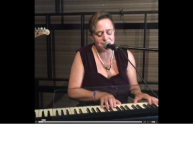 -by Grant Cochrane -from SOCAN
-by Grant Cochrane -from SOCAN
[See the original article at: http://www.socanblog.ca/en/behind-the-scenes/]
Copyright is complex and, to many people, misunderstood. One of the biggest misunderstandings is that people don’t recognize the difference between a performer and a songwriter. It’s naturally confusing, since often they’re the same person.
But when they’re not one-and-the-same person, we usually don’t know squat about the songwriters; only the names of the performers come to mind when we think about a song.
For example, if I mention the song “This Kiss,” you’ll think of Carly Rae Jepsen. But if I ask you who wrote the song with her, you probably won’t have a clue. You know who performs the song, but not who wrote it. The answer is Matthew Bair, Kelly Covell and Stefan Gordy: they co-wrote “This Kiss” with Carly Rae Jepsen, and they – along with more than 120,000 other music creators – are the reason why SOCAN exists.
Songwriters and composers who don’t perform their own music usually don’t have a publicly recognizable “face.” In those rare cases when they do, it’s not because of the work they’ve done to write the music, but because of the performances that people see and hear. But they still deserve (and are legally required) to be compensated for their work. And, make no mistake, it is difficult and highly specialized work.
This fair compensation happens through SOCAN licensing. When a songwriter’s music is publicly performed, the royalties that they deservedly earn for the public performance of their music is one of their two main sources of income.
A business uses their music to create more business and, for that, songwriters deserve a small portion of that additional revenue. A business always has a choice to turn off the music. But they choose not to because music makes them a more profitable business. A restaurant fairly compensates the farmer who grew the lettuce for the salad. It’s no different with music.
Since music is available everywhere, we sometimes think that we can do whatever we want with it. But it’s not the case. Through a collective like SOCAN, songwriters and composers license the use of their work according to different criteria. We can’t really argue about being paid for working, can we? Just like the business using their music, songwriters and composers are working hard to make a living and deserve fair compensation for their talent and hard work.
The reason why music creators license their works through SOCAN is for ease of process, not only for them, but for those who use the music.
Imagine if every businessperson had to contact each and every rights holder of every song they’d like to play in their place of business – it would be a nightmare to administer. But a SOCAN licence gives music users access to virtually the world’s entire repertoire of copyright-protected music. One licence gives a music user the right to play more than 3,000,000 songs, and businesses can then choose what music will improve their business results the most. That’s easy, effective, comprehensive access.
I hear music users say, “Why would I have to pay to listen to music I already own?” The answer is clear: Music makes your business better.
If you have two jobs, you expect to receive two paycheques. Why wouldn’t the writers and recording artists of music get the same treatment for the two different jobs that they’re doing? As recording artists, they may receive money for the sale of their music, but as songwriters, they also deserve to be paid for the business use of the songs that they worked hard to write. It’s only fair. And if the songwriter and the recording artist are two different people, both need to be fairly compensated for the use of their music.
SOCAN works with businesses that use music to improve their business, so that they do what’s right for music by compensating songwriters and composers for their extraordinary, specialized work.
Because no music means no atmosphere, no atmosphere means no fun, no fun means no customers, and no customers means no business.
- See more at: http://www.socanblog.ca/en/behind-the-scenes/#sthash.ACtHDRc9.dpuf





